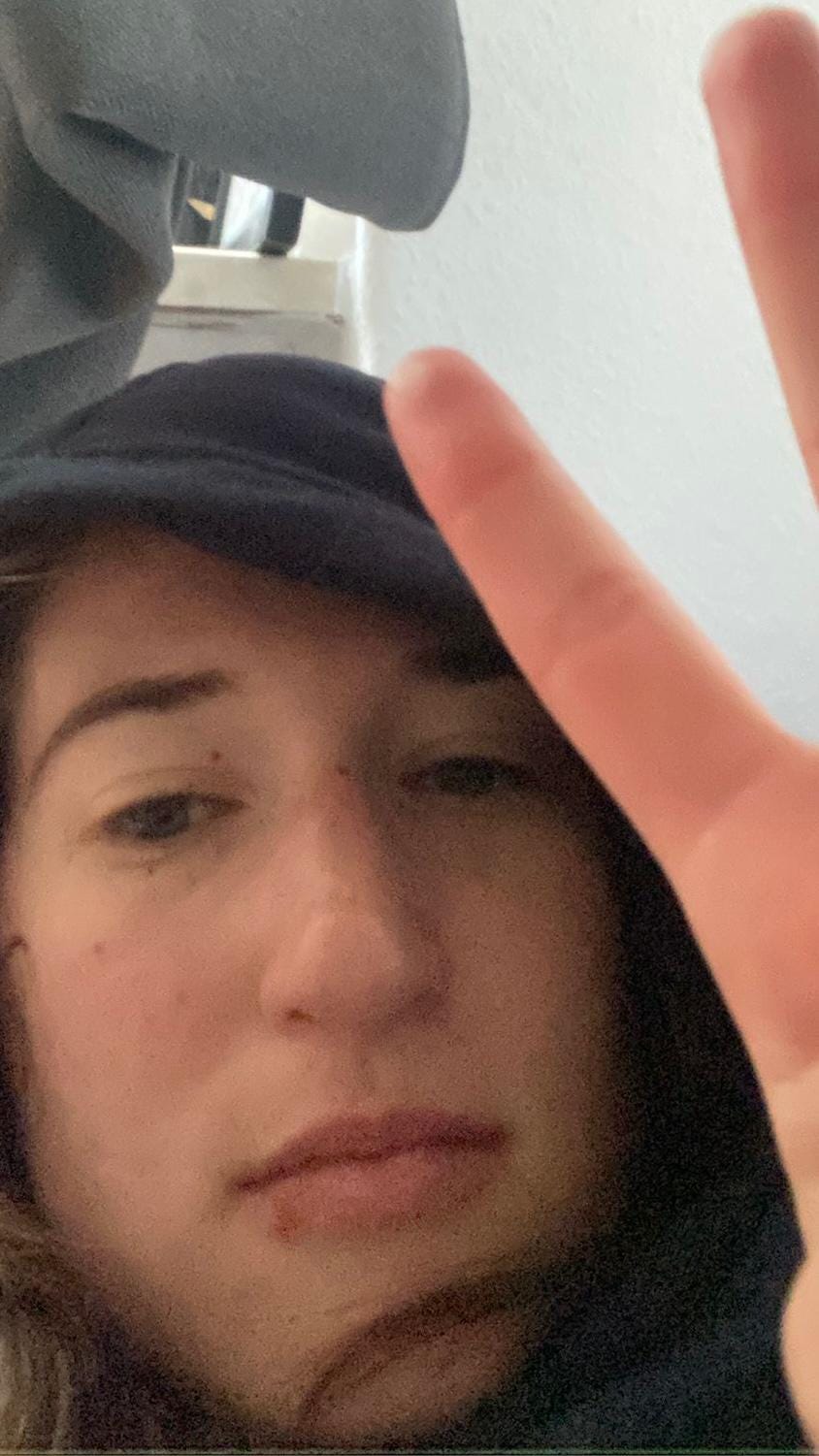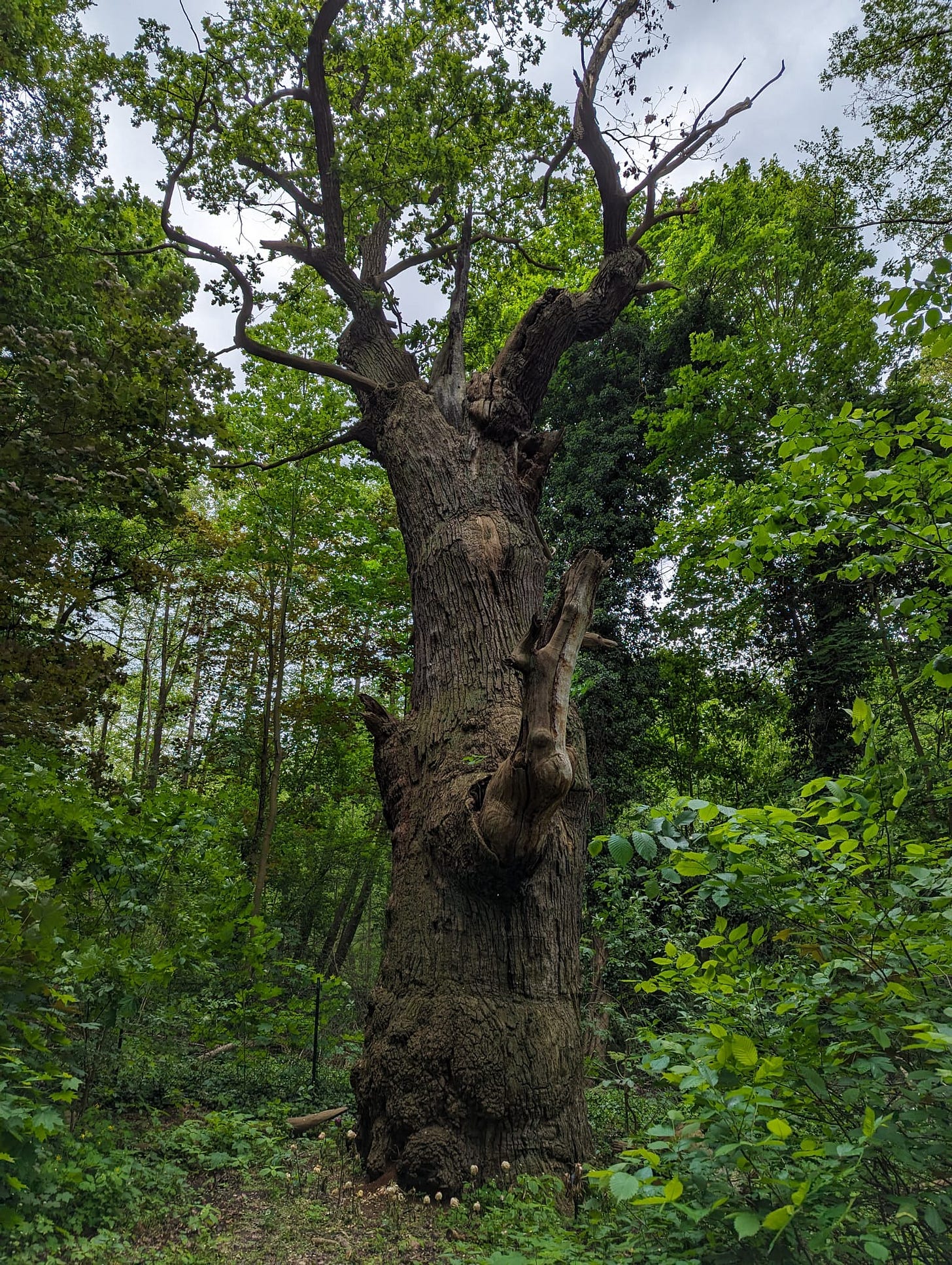
I’m writing this on a day in which autistic burnout kept me from going on a hike with my husband and some friends. We were planning to see the oldest tree in Berlin (the city I’ve lived in for the past two years). It’s a hike my husband and I have been planning to go on (at some point) for well over a year.
I love being in any kind of nature (I even worked at a pizza restaurant in Grand Teton National Park after college mostly just so that I could live in the woods, but that’s another story for another day). Sure, being able to reliably wash my face and floss is cool, but burnout is especially painful when it prevents me from doing something life affirming like spending time in the woods with friends.

For months, I couldn’t even reliably walk down the street, much less hike, due to health complications from endometriosis. Finally, since I can now walk long distances, we planned the hike with friends as soon as the weather became warm and sunny. Today, as the time finally came to go see this tree I’ve been imagining for so long, I had to cancel for reasons I myself barely understand.
On days like today, I usually blame my endometriosis, rather than my autism, for canceled plans. It’s easier to lie and say that I’m having a pain flare-up than to say something that would be closer to the truth: There’s an invisible wall I just can’t climb that’s keeping me inside. I don’t know how to talk to people today, and the world feels too loud and unsafe in its unpredictability.
Autistic burnout is the result of prolonged periods of stress that come from living without accommodations that make life more bearable for autistic people. The easiest way I can describe my experience of it is that it feels like someone found a switch in my body that powers everything and just switched it off. Every autistic person’s experience with burnout and accommodation needs varies widely; there are just as many different experiences of autism as there are autistic people. I am the type of autistic person often labeled as “high functioning”, sometimes also called “low support needs.”
People like me, especially women, non-white people, and really anyone that is not a cisgendered white man, are typically diagnosed later in life. This is sometimes because we are better at masking (covering up our autistic traits to fit into neurotypical society) and often because autism has typically only been understood through the lens of how it presents in white male children. Being diagnosed later in life means that we are at a very high risk of burning out in our adulthood, because we have spent our entire lives not being able to meet our needs. In many cases, we can’t even identify these needs because we’ve spent years pretending not to have them.
I started experiencing burnout at a more severe level during university, although elements of it were also present during my childhood. During the past five years, I finished a PhD (during the pandemic), received surgery for and was diagnosed with endometriosis, got married, and moved house almost every year (including one big move from Ireland to Berlin two years ago). Change, even really happy and welcome change like falling in love and getting married, is quite difficult for autistic people.
This whirlwind of near constant change in my own life has left me cycling through 2-3 quite severe burnout days every week. It’s made it hard to make and maintain friendships while living in a new city. I often meet someone, click with them, and have one or two great hangouts that could provide momentum for a long term friendship. But I just can’t maintain the momentum. I make too many plans (which some weeks means any plans at all) and then end up canceling them. I can understand why, in these situations, potential friends and even established loved ones might think I’m an asshole. I can understand why they’d be mad at me, because during these moments, I’m also angry with myself.
I’m aware that, compared to the funnier tone of the first Autistic Asshole entry, this little essay is kind of a bummer. In the Autistic Asshole, I will always strive to communicate as clearly, honestly, and boldly as possible the reality of my own experience. Writing this today helped me transform what was just a purely bad day full of despair into a form of self expression. Per my mission statement for this project, writing about these bad days is an essential part of the autistic asshole authenticity.




Thank you so much for sharing your experience, Laney! I don’t think this post came off as a bummer, but rather explanatory and I’m really glad to have learned a bit about autistic burnout.
Agreed. That was definitely not a bummer. I feel seen in your words and story. Thank you.